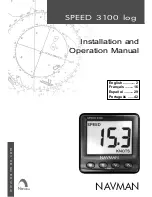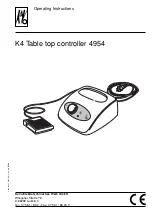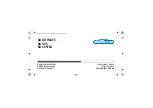
Lux-Ray LED - Emergency lighting
Emergi-Lite
Tel: (888) 552-6467
Fax: (800) 316-4515
www.emergi-lite.com
02/13 750.1712 Rev. A
2/2
6. Close the inside cover and tighten the screw.
7. Remove the unit housing from the package. Units with DC-
remote power: go to step 8 (see figure 3).
a. Units with battery back-up: plug the battery connector in the
slot. The connector is polarized, do not force-fit . Correct
installation has the positive red wire at the left (see figure 3).
b. Units with dual AC circuit: connect the orange wire labeled
“VOLTAGE SELECTOR” to one of the two wires labeled AC
VOLTAGE (black: 120V; orange: 277V). Cap the unused
wire with a wire connector.
8. Hook the security wire to the backplate and tighten the screw
(see figure 3).
9. Align the unit housing over the back plate and press until it
snaps in place (see figure 4).
10. Energize the circuits. Units with battery back-up will have the
test button illuminated.
Testing the emergency lights
Allow the unit to charge for 24 hours before testing. Press the test
button. The unit will light in emergency mode for one minute. To
abandon the test press the test button again.
Testing the normal lighting
Turn the AC power on: the unit will light.
Units equipped with photo-switch: mask the small circular window
with the finger: the unit will light. Uncover the window: when
exposed to ambient light the unit will turn off.
Maintenance
None required.
WARNING:
Hold the housing in your hand and open the unit with a
flat head screwdriver. When replacing the housing assembly
ALWAYS hook and tighten the security wire.
Disconnect the battery if the emergency power supply is disabled
for two months or more.
Self-diagnostics / self-test (battery units)
1. Once supplied with power the unit will automatically initiate self-
diagnostic routines and a self-test calendar as follows:
a. Verifies battery connection, battery failure, charger board
failure and lamps failure.
b. Executes one-minute monthly self-test.
c. Executes a 30-minute self-test every 6th month.
d. Executes a 90-minute self-test every 12th month.
2. The LED pilot light is bi-color and indicates the following status:
a. Green color: AC-on / self-test
b. Red color: Service alert (see figure 5)
3. Transfer time delay (TD option)
This function acts when the AC power was restored: it keeps the
emergency lights "on" for a period of: 5, 10 or 15 minutes (factory-
set). If the battery depletes before the end of the time delay, the
lamps turn off and the unit goes in stand-by mode.
Battery
Backplate
Housing
+
-
Hook and tighten the security wire
Figure 3
Connect
battery
Figure 4
Housing
Back plate
Steady on
Battery
Two Blinks
Charger Failure
Three Blinks
Lamp Failure
Battery Failure
One Blink
red
red
red
red
green
Blinking
Testing Mode
Steady
AC On
green
Disconnect
Figure 5




















